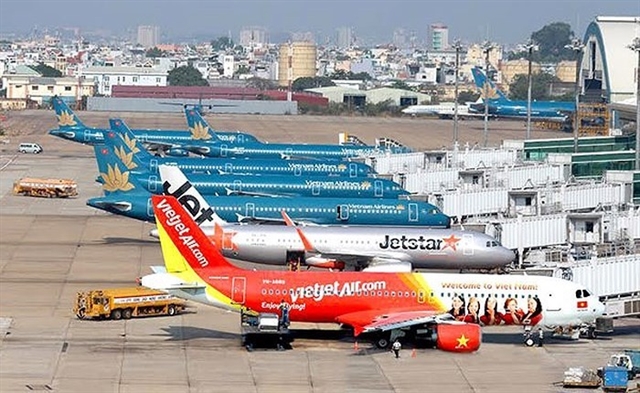The race to reduce air fares by airlines is directly benefiting consumers, but there is also concern that price reduction could distort the market in the long run.

The race to reduce air fares by airlines is directly benefiting consumers, but there is also concern that price reductions could distort the market in the long run.
The Minister of Transport last weekend issued a decision to set up a working team with Vietnamese airlines on the observance of legal provisions on the Competition Law and Law on Pricing with domestic air transportation service prices.
Accordingly, the team will develop plans and work with Vietnamese airlines to promptly correct and handle violations or propose handling and report to the Ministry of Transport in the third quarter of this year.
In fact, the domestic aviation market has "underground waves" related to ticket prices, when there is a view that competition to reduce fares is too low compared to the cost, making the market unhealthy.
Previously, Vietnam Airlines reiterated its proposal to increase the ceiling price and apply the floor price of air tickets at a meeting with the Civil Aviation Authourity of Viet Nam in April.
The Thanh Nien (Youth) online newspaper quoted a representative of Vietnam Airlines as saying that the airline had never sold tickets for zero Vietnamese dong and did not support competition by dumping, but by quality of services.
This airline also believed that in order to ensure healthy competition between airlines, and to ensure finance for domestic airlines to compete with foreign ones, the aviation industry needed to have a supervisory and management mechanism to implement anti-dumping solutions.
Airlines are currently building fares on the basis of the maximum price bracket for domestic air transportation services as prescribed in Circular 17/2019/TT-BGTVT of the Ministry of Transport.
Accordingly, airlines are allowed to sell air tickets according to a flexible price mechanism, build many price ranges from low to high, without applying a floor price, except for the ceiling price from VND1.6 million to VND3.75 million (US$70 - $163) depending on each route.
Dr. Nguyen Duc Kien, head of the Prime Minister's Economic Advisory Council, said that the COVID-19 pandemic was the cause of a serious decrease in revenue, but also revealed weaknesses in the operation of many airlines in the world. As of April, the average airfare on the market was only 55 per cent of the same period in 2019.
Reduced fares may come from airlines' consumer stimulus programmes in the context of the pandemic, or it might also come from an oversupply. However, the drastic reduction in ticket prices would cause distortions in the market picture, causing an imbalance between the price and the selling price, he said.
Notably, the "dumping" of air tickets in the context that airlines were under great financial pressure could cause a serious decrease in revenue, but worse, push airlines to bankruptcy, when revenue could not cover existing costs, said Kien.
In the short term, consumers could benefit when ticket prices fall, but in the long term, if there was a monopoly situation in even a few segments, businesses would have to increase their selling prices sharply to make up for the loss. Thus, the consumer would suffer, he added.
Kien also recommended that the management agency should study and adjust the issues of ceiling prices and floor prices in line with market supply and demand and the interests of airlines in the direction of special support for aviation businesses in this difficult time.
In addition, it was necessary to have measures to balance air fares with prices of other modes of transport such as water transport or railways.
The Government needed to assign the Ministry of Industry and Trade and the Ministry of Transport to investigate, handle and clarify whether the issue of fare reduction to compete is an act of dumping. — VNS





